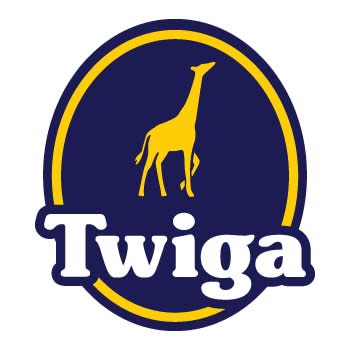As part of a public-private partnership with the Kenyan government to increase food production, Twiga Foods, a B2B food commerce company, has started cultivating maize.
The Galana-Kulalu Food Security Project is a pilot study experiment inside the broader Galana Irrigation System, a massive 1 million-acre agricultural project intended to enhance food production in Kenya.
As part of the Galana-Kulalu Food Security project, a model farm of 10,000 acres was set up to test the effectiveness of innovative irrigation methods on a large scale.
Nevertheless, since 2014, the project has had difficulty meeting goals because of alterations in financial allocations and adverse weather.
According to projections for 2019, the model farm will sell 1.2 billion kilos of corn annually.
Unfortunately, just 119,000 90-kilogram bags of maize, or around Ksh 273.7 million, were produced.
Read also: Twiga Expand Operations In Kenya with Twiga Fresh
The Kenyan government declared in January 2023 that it would allow private businesses to operate on 5,000 acres of the Galana-Kulalu Irrigation Scheme as part of a government-private partnership to enhance food production.
According to the Kenya Revenue Authority, Twiga Foods is the first private company to start commercial farming in the Galana-Kulalu project region. Twiga Foods was recognised as the highest paying Medium Taxpayer in 2016.
Twiga Fresh Investment
Twiga Foods started its first farm in May 2022 in order to have more control over its supply chain.
With a $10 million investment, the new company Twiga Fresh was established to cultivate 1,606 acres of land and produce onions, tomatoes, and watermelons at an annualised rate of 150,000 tonnes.
Twiga will continue to act as the parent company for the business’ ongoing B2B e-commerce initiatives with the aim of providing independent retailers with a one-stop supply-chain solution through the distribution of both Twiga and other brands’ goods.
Twiga Fresh, in addition to our expanding selection of private label products, will ensure we increase client numbers and widen the basket size by providing high-quality produce at a discount compared to going market rates, according to Peter Njonjo, CEO and co-founder of Twiga.
This is in line with a trend of large B2B food commerce companies in East Africa to integrate backwards in order to get much greater control over their supply chain.
Kenyan officials decided to enlist one of their favourite taxpayers to launch the Galana-Kulalu Food Security Project after learning about Twiga’s intentions to launch a commercial farm.
The best producing farms in the industry are those owned by Twiga, as we can attest from firsthand knowledge.
According to BusinessDaily Africa, a Kenyan business media magazine, these “would not only allow us to achieve food security but also create jobs,” said Mugambi Gitonga, Senior Secretary for Irrigation.
By offering subsidies for unga (maize flour) and other goods, the national government of Kenya has stepped in to address the record-high prices of basic necessities.
In an effort to prevent a famine, Kenya’s government signed agreements to block the entry of genetically modified items and to hasten the supply of necessary food staples.
Kenyan producers have spoken out strongly against both proposals.
According to the Kenya Institute for Public Policy Research Analysis, 14.5 million Kenyans experience food insecurity and poor nutrition every year, and 2.6 million are considered to be in a “crisis” of food insecurity.
Twiga Foods was founded in 2013 and has since raised a total of $157.1 million from venture investors to become one of Africa’s top retail B2B food commerce businesses.
About Twiga Foods
Twiga is a tech-driven company that connects buyers and sellers across Africa and streamlines the delivery of high-end goods and services.
Our efforts to change retail in Africa are being led by Twiga Co-Founder and CEO Peter Njonjo, who will also be in charge of leading the business into the future.
Peter started Twiga after working for Coca-Cola as the president of their West African business unit and later as the general manager of their East African franchise.
Twiga Foods was founded in 2014 by Peter Njonjo and Grant Brooke, both of whom have held the position of CEO. Twiga identified the opening in Kenya’s unorganised food business.




